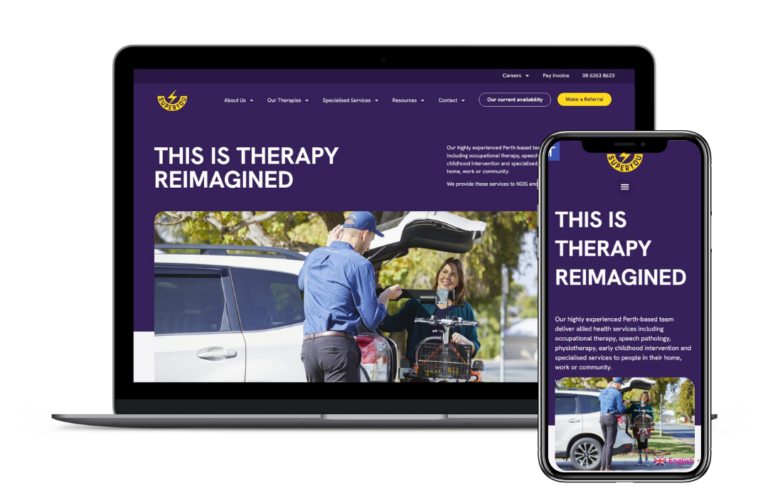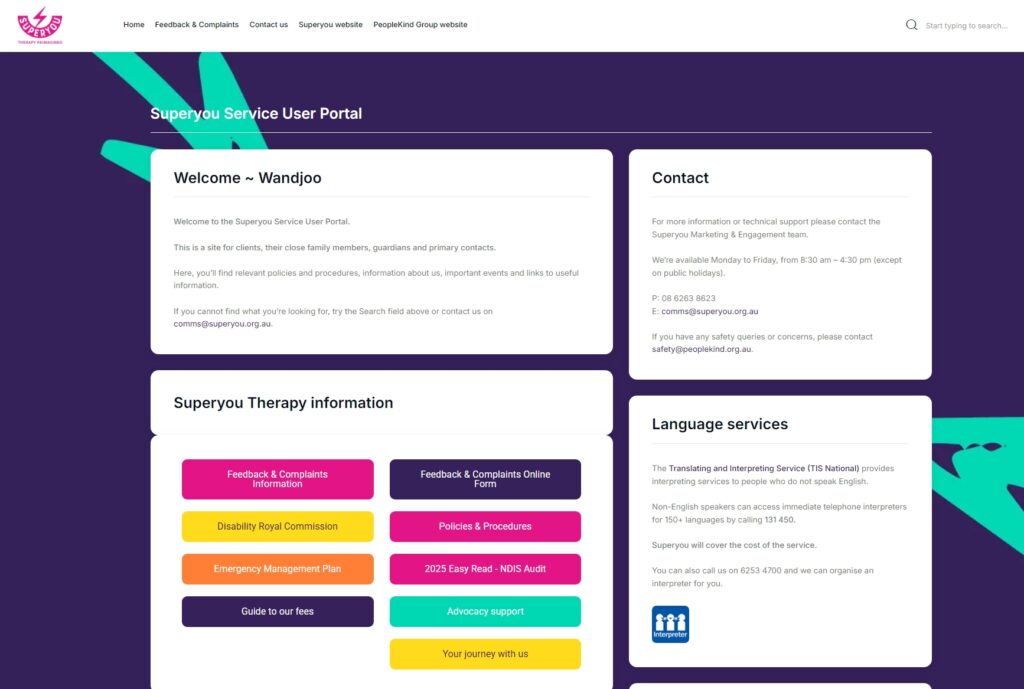
Introducing... the first ever Superyou Client Newsletter!
Hi everyone!
We hope you had a fantastic holiday season.
This year, we are continuing our commitment to communication. We want all our clients to feel informed and empowered, which is why we thought we’d kick off the year by sharing a Superyou Update with you!
Welcome to 2025!

What did we get up to last year?
📈 We onboarded new clinicians and support staff which saw us reach over 100 employees!
🚀 We launched new services in specialised therapy areas such as augmentative and alternative communication, mealtimes and dysphagia, home automation and access technology, and autism diagnostic assessments.
And what’s in store for 2025?
We have a lot of plans! This year, we’re going to:
- Double-down on our Superyou objectives, including to continue wowing our clients and encouraging our employees to think big.
- Share good news stories on our socials about our client and clinician successes (make sure you’re following us!).
- Experiment with different ways of communication, using alternative formats like short, informative videos.
When should you consider an autism assessment for your child?
Navigating the world of autism can feel overwhelming, especially when considering an assessment for yourself or your child.
It’s a journey filled with questions, uncertainties, and a deep desire to understand.
But how do you know if and when it might be time to consider an assessment?

Recognising the Signs: Is it Time to Consider an Assessment?
Every autistic individual is unique, making it challenging to pinpoint specific signs.
However, if you’ve noticed developmental differences in your child compared to their peers, or if you recognise certain traits in yourself, it’s worth exploring further.
This is particularly crucial for those with younger kids.
Under the NDIS, children under 7 can access early intervention supports through the Early Childhood Approach without requiring a formal diagnosis.
But once they turn 7, they must meet the NDIS eligibility criteria for permanent and significant disability, which usually requires a formal diagnosis and supporting evidence from relevant health professionals.
Think about discussing your observations with people who know you or your child well, such as family members, teachers, therapists, or a GP or paediatrician. They can offer valuable insights and help you determine if an assessment might be beneficial.
You can read more about our authentic, strengths-based approach to autism assessments on our website.
💭 Ask us your NDIS questions!
Lately, we’ve been hearing clients asking a lot of questions about their NDIS funding – especially if they’re within the Early Childhood Intervention cohort.
We thought it might help to open up an avenue for all our clients to send us through any questions you might have relating to funding, NDIS updates, and the industry as a whole.
This is part of our dedication to clear communication and transparency, because we know how confusing it can be.
So, we encourage you to fill out the below form with your questions, and we will address them in the coming weeks.
Come visit our new website!

Towards the end of last year we launched our fresh new Superyou website with a splash of colour and a more streamlined design to make it easier for our visitors to find what they need, when they need it.
Take a look below!
And make sure you head over to our updated Meet The Team page to get to know the Superyou team a little closer.
Have you logged into the Superyou Service User Portal lately?
Our Service User Portal is a great way to quickly find any information you need regarding your Superyou services, like our Guide to Fees and our Complaints and Feedback process.
You can access your User Portal through the link below. If you aren’t sure of your password or login details, just follow the prompts to reset your password!

That’s all for now!
If you liked this Superyou update, feel free to let us know!
We look forward to sharing more news & updates with you soon.
From the team at Superyou ⚡




